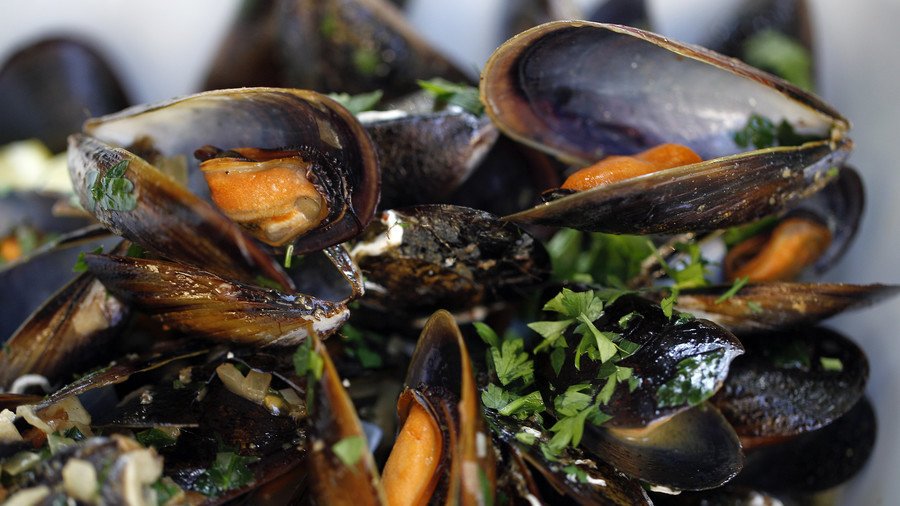
Opioid Traces Found in Freshwater Mussels in Seattle!

Who doesn’t love fresh mussels straight from the salty ocean? Unfortunately, seafood-lovers are in a for a bad surprise after scientists discovered that the drug consumption problem in Seattle has gotten so bad that traces of opioid are now being found in mussels.
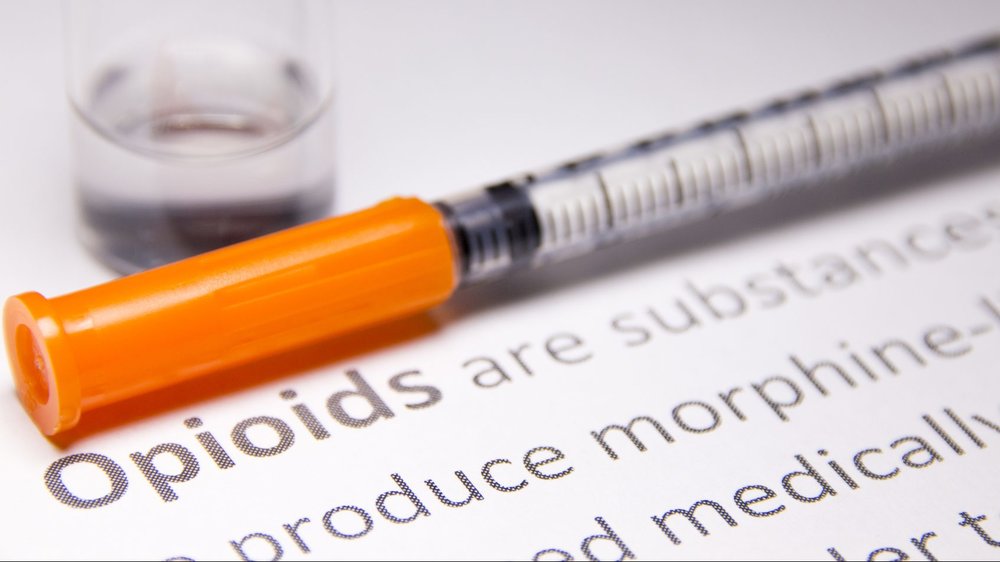
Almost 115 people in the United States die every day due to opioid overdose
America’s Growing Drug Crisis
America is facing a huge drug epidemic which has snowballed into a deadly crisis, ending almost 115 lives every day due to overdose from a special type of drug called opioid. Recent studies have shown horrific results in opioid addiction across the country, which has surged over 500 per cent in the past decade.
The problem has become so serious that now marine life has started suffering from the excessive heroine and oxycodone use. A recent scientific research showed that the use of opioids in Seattle is so prevalent that even mussels are being tested positive for the drug.
It was scientists from the Puget Sound Institute who first made the claim that mussels in the Pacific Northwest waters contain traces of opioids. According to the reports, the content of Oxycodone in the Puget Sound waters was so high that it is was starting to show up in mussels’ tissues.
The claim was confirmed by the Department od Fish and Wildlife in Washington, after the agency conducted a routine test to check the pollution content in the urban waters.
Mussels, being the best and the most efficient way of testing for pollutants were taken from unpolluted areas and left in Washington’s Puget Sound for a few weeks. Two to three months later, the mussels were taken out of the waters and their tissues were tested in the laboratory for any chemical accumulation.
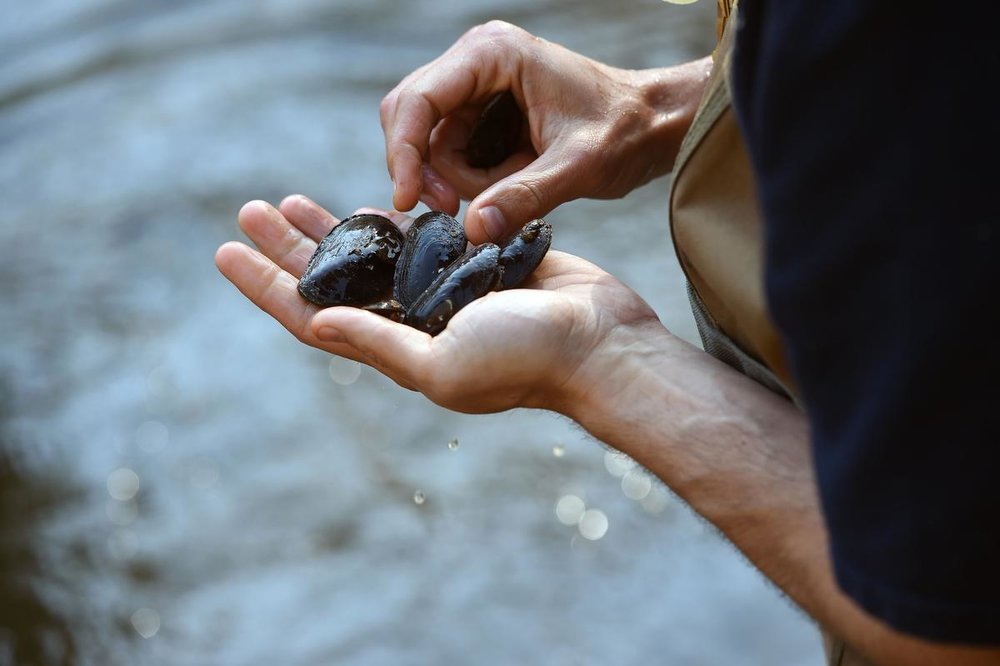
Puget Sound Institute discovered last month that mussels in the Pacific Northwest waters contain traces of opioids
Oxycodone Shows Up in Mussels
Surprisingly, the mussels contained traces of the drug in their tissues – although, it wasn’t even close to being enough to have an adverse effect on humans. Jennifer Lanksbury, a biologist from Puget Sound Institute announced the results of the experiment and said that out of the 18 testing groups of mussels being studied, only three showed traces of oxycodone. Those mussels that did show signs of contamination, contained an extremely weak concentration of opioids – up to 500 times less than one dose for humans.
According to Lanksbury, in order to get a minimum dose, one would have to eat at least 150 pounds of this freshwater creature. Scientists also assured that the areas which are the most effected by opioid pollution are the least likely to be used for mussel harvest, which is why seafood lovers need not worry about the drug pollution affecting their health indirectly.
If you’re wondering how the drugs enter the system of these freshwater creatures, then you have humans to thank for it – just like with every other type of land and water pollution. Although the traces of oxycodone found in mussels aren’t enough to affect consumers, they do point towards a much serious problem: the increasing drug usage in the United States. According to researchers, there are enough people using opioids and peeing them out to contaminate the waters with oxycodone.
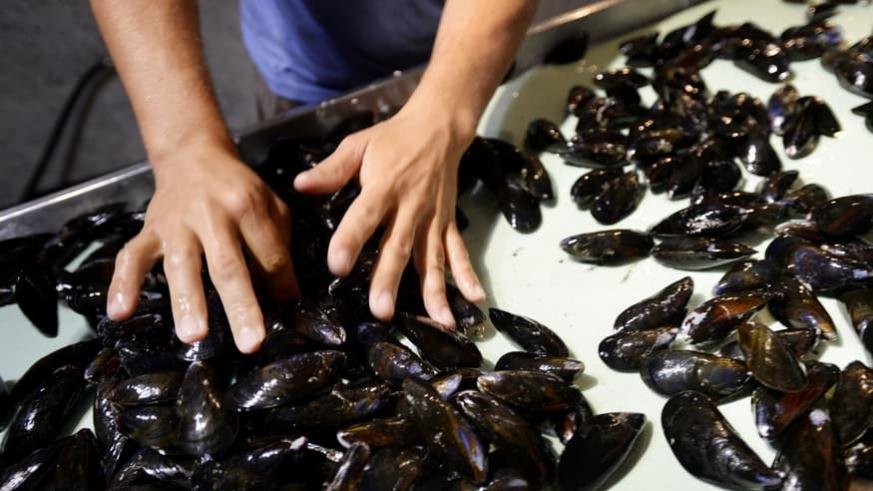
In 2017, researchers also found traces of antidepressants in the brains of several marine species in the Niagara River
More Drug Pollutants Found in the Past
The drug enters the freshwater stream through wastewater which is treated in plants to remove chemicals and toxins before being flown into the sea. However, the treatment plants are not able to remove all the pollutants from the waste and some of them – including oxycodone – is reintroduced in the clean water from where it enters the tissues of mussels and clams.
This isn’t the first time that freshwater has been treated positive for drugs. In August 2017, researchers found traces of antidepressants in the brains of several marine species in the Niagara River. Lead scientist Diana Aga, said that the contamination could become a threat to marine life as past studies have shown that chemicals in antidepressants can affect the behavior of fish and make them more vulnerable to being attacked by predators.
Of course, the real concern in both pollution incidents is drug addiction which is becoming more troublesome by the day. According to the estimation by Centers for Disease Control and Prevention, every year, $78.5 billion is spent in the United States due to opioid misuse.
More in Weight Loss and Diet
-
Worried About Diabetes? Here Are Some Common Myths
There are several myths about diabetes that are frequently reported as facts. Diabetes misrepresentations can sometimes be harmful, leading to an...
June 29, 2023 -
Many Patients Pay Their Medical Costs Out Of Their Pockets – Even With Insurance
With rising inflation, it has become difficult for people to even fulfill their basic necessities. They are more concerned about how...
June 6, 2023 -
What Is The Right Weight For Kids And How To Gain Weight Healthily
Keeping your child happy and healthy is the primary concern of every parent. Parents usually focus on providing their young ones...
May 12, 2023 -
Thyroid Disorders in Children: What Parents Need to Know
Thyroid disorders are not limited to adults; they can also affect children. The thyroid gland produces hormones that play a crucial...
April 29, 2023 -
Should Doctors Attend To Patients With ‘Do Not Resuscitate Tattoos’?
Doctors at the University of Miami hospital were confronted with a dilemma when a 70-year-old unconscious man with a tattoo “do...
April 3, 2023 -
Your Antidepressant May Not Work If You Keep Doing This One Thing
People use social comparison to measure their self-worth. Social comparison has been in existence since time immemorial, and it is as...
April 1, 2023 -
Pro Tips on Preventing Hair Breakage While Keeping Your Hair Moisturized at Home
Every one of us is thinking a lot about how to forestall hair breakage and keep them moisturized at home. Since...
March 22, 2023 -
Planning to Travel After Retirement? This is the Best Medicare Coverage for You
Does Medicare insurance go with you once you are out of the country? It’s currently open enrollment period, and while planning...
March 14, 2023 -
Lumeris, A Medical Insurance Provider, Expands Into 5 New States & 44 Counties
Lumeris is one of the leading insurance providers in the United States. For years, the Saint Louis, Missouri-based firm has been...
November 8, 2022

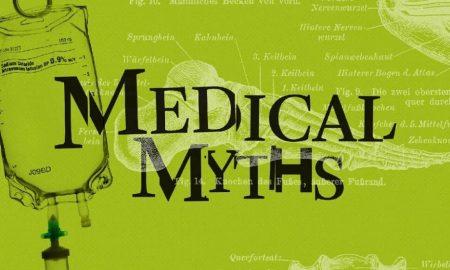













You must be logged in to post a comment Login